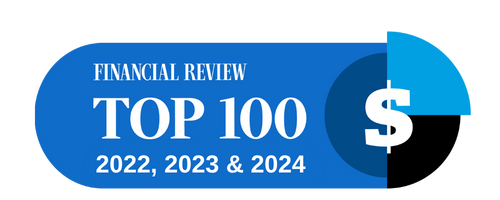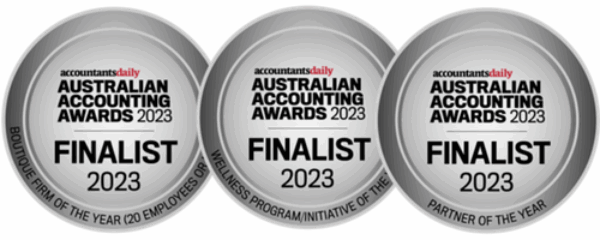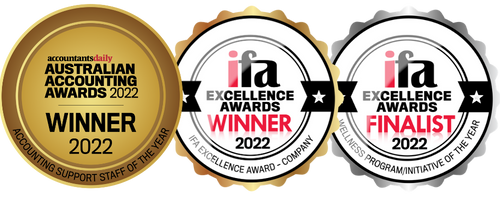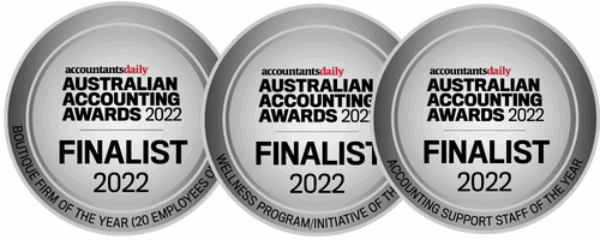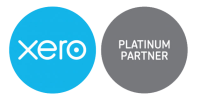By Michael Walsh, CEO of Walshs Chartered Accountants and Financial Advisors
The Coronavirus Stimulus Packages announced over the past week by Federal and State governments and the Australian Banking Association have major implications for small and medium businesses.
Key items of interest for our clients are:
BANK LOANS
- Bank loan repayments: The Australian Banking Association has announced that all small businesses affected by the Coronavirus pandemic will be able to access a six-month deferral of all loan repayments. More details on eligibility (including the definition of “small business”) will be forthcoming. I understand that the deferral will also apply to home loans for people affected – more details to come.
QUEENSLAND
- Job support loan facility: Up to $250,00 available ( interest free for the first 12 months). Eligible clients need to register by email or phone 1800-623946, advising their full name, phone number and preferred email address.
- Six-month payroll tax deferral: Eligible businesses can defer lodging and paying payroll tax until 3 August
TAXATION
- BAS deferrals: Eligible businesses will be able to defer by up to four months the payment of tax amounts due through BAS (including PAYG instalments), income tax assessments, FBT assessments and excise.
- PAYG Withholding: The tax-free automatic tax credit for PAYGW will be increased up to $100,000 with a minimum credit of $10,000. The automatic credit will be received from 28 April, 2020 when the business lodges its BAS and will be equal to 100% of the PAYG withheld (up to a maximum of $50,000 per period). The ATO will provide the credit to the entity upon lodgement of the BAS. Where a refund is due the ATO will provide the refund within 14 days. Eligible employers that pay salary and wages will receive a minimum payment of $10,000, even if they are not required to withhold tax. The payments will only be available to active eligible employers established prior to 12 March, 2020. To be eligible for the additional payment (post 1 July, 2020) the entity must continue to be active. March quarter to June quarter: Employers will receive a tax credit equal to 100% of their PAYGW liability (up to a maximum of $50,000). Quarterly lodgers will be eligible to receive the tax credit for the quarters ending March 2020 and June 2020. Monthly lodgers will be eligible to receive the tax credit for the March, April, May and June 2020 lodgements. The credit for monthly lodgers will be calculated at three times (300%) in the March BAS. The minimum payment will be applied to the entities’ first lodgement. July-October 2020 – an additional payment equal to the total credits they received in the previous period (up to a maximum $50,000).
- Business PAYG instalments: Eligible businesses can vary to nil from the March quarter (the current quarter). Businesses that vary their instalments to zero can also claim a refund for any tax instalments made for the Sept 2019 and December 2019 quarters. If a business is a monthly PAYG instalment payer and wants to vary the instalment rate and claim a refund on previous instalments paid, they will need to phone the ATO (137226) to discuss their situation. If a taxpayer realises that they have made a mistake working out their PAYGI they can correct it by lodging a revised activity statement or varying a subsequent instalment.
- Changing reporting cycle: Business can opt into monthly GST reporting (no need to change the PAYGW reporting cycle) to get quicker access to any GST refunds. This change can only be made from the start of a quarter – say 1 April, 2020. Once a business makes this choice to report GST monthly it must continue to report monthly for at least 12 months before it can switch back to quarterly reporting.
- Remission of interest and penalties and low interest payment plans: Any interest and penalties incurred after 23 January, 2020 that have been applied to tax liabilities will be remitted. Affected business can apply to enter into low interest payment plans for existing and ongoing tax liabilities.
- Business investment incentives: Instant asset write-off: From 12 March to 30 June, 2020, $150,000 (this decreases $1000 from 1 July, 2020. Accelerated depreciation from March 2020 to 30 June 2020.
Note: The above tax measures will not be automatically implemented by the ATO. Anyone impacted by the Coronavirus pandemic will need to contact the ATO Emergency Support Infoline (1800-806218). Once a taxpayer contacts the ATO, a support plan will be tailored for the taxpayer/business.
EMPLOYERS
- Apprentices/trainees: Eligible employers can apply for a wage subsidy of 50% of an apprentice/trainee wage for nine months from 1 January to 30 September 2020. Employers will be reimbursed up to a maximum of $21,000 per eligible apprentice/trainee ($7000 per quarter). The subsidy will be available to small business employing fewer than 20 full-time employees who retain an apprentice or trainee. The apprentice or trainee must have been in training with a small business as at 1 March 2020. Employers can register for the subsidy from early April 2020 – final claims for payment must be lodged by 31 December, 2020. For more information: www.dese.gov.au or www.australianapprenticeships.gov.au.
- Superannuation – Employers will still need to pay the SGC liability by the due dates. A change in the legislation will be required to alter this.
Other available benefits/concessions are:
- Social security, veteran and other income support recipients – Two payments of $750. The first payment will be made from 31 March, 2020 and second payment made from 13 July, 2020.
- Superannuation money release – Individuals affected by the virus can access (tax free)up to $10,000 of their superannuation in 2019-2020 and a further $10,000 in 2020-2021.
- Pension drawdowns – The minimum drawdown requirements for account-based pensions are to be reduced by 50% for 2019-2020 and 2020-2021 (this also happened during the GFC).
- Centrelink Deeming rates – From 1 May, 2020 the upper deeming rate will be 2.25% and the lower deeming rate will be 0.25%.
If you want further insights into the impact of the Coronavirus Stimulus Package on your business, contact Walshs on 07 32215677 or email your relevant partner.
Key takeaways
- All small businesses affected by the Coronavirus pandemic will be able to access a six-month deferral of all bank loan repayments.
- Eligible businesses will be able to defer by up to four months the payment of tax amounts due through BAS (including PAYG instalments), income tax assessments, FBT assessments and excise.
- Eligible employers can apply for a wage subsidy of 50% of an apprentice/trainee wage for nine months from 1 January to 30 September 2020. Employers will be reimbursed up to a maximum of $21,000 per eligible apprentice/trainee ($7000 per quarter).
The information in this blog is intended only to provide a general overview and has not been prepared with a view to any particular situation or set of circumstances. It is not intended to be comprehensive nor does it constitute legal advice. While we attempt to ensure the information is current and accurate we do not guarantee its currency and accuracy. You should seek legal or other professional advice before acting or relying on any of the information in this blog as it may not be appropriate for your individual circumstances.




